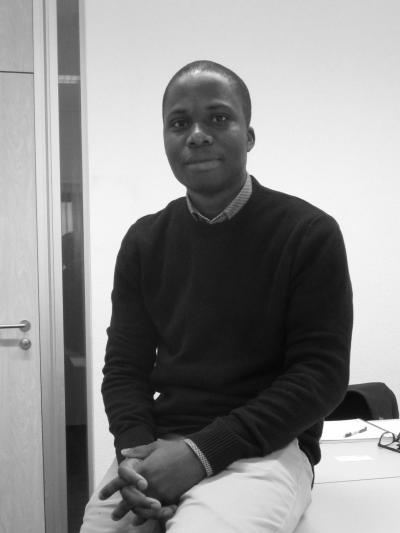Sunday Chukwudi Okoro
Field of research: Materials Performance & Processing
Describe your field of work and current role
My present role as a Lead Engineer within Grundfos’ Advanced Manufacturing Engineering group function, tasks me to drive materials innovation by exploring material property & processing nexus.
Both metals and polymers are of interest, and my primary focus is on metals – with stainless steels covering a large extent of the bandwidth.
In my line of work, I engage in scouting new developments within my technology domain, leading projects qualifying new technology offerings and supporting internal stakeholders in projects requiring my competences – this could be in broader multifunctional technology projects or in product development projects.
While performing these roles, I am also constantly on the lookout for areas where external collaborations could be of importance, especially with national universities within Denmark.
What has your path been from starting at university until today?
Before relocating to Denmark in 2013 for my PhD at DTU, I completed my B.Tech. in Industrial Chemistry and M.Sc. in Materials Chemistry respectively from the Federal University of Technology Owerri, Nigeria (2009) and the University of Eastern Finland (2013).
My PhD research on high temperature corrosion during biomass firing, formed part of a cross-functional project within DTU (DTU-Mechanical Engineering, now DTU Construct and DTU-Chemical Engineering) and industrial partners (Ørsted, then DONG Energy, and Vattenfall).
Upon completion of my PhD in 2016, I spent a year and half as a postdoc at the CHEC research unit in DTU Chemical Engineering, where I worked on the Biofficieny EU-funded project, aimed at providing scientific input for next generation power plants.
My path through the university always inclined towards applied research, where collaboration with industry played vital roles.
In 2018, I decided to switch to the industry and started as a materials specialist within the “core technology” group function at Grundfos. I have held three positions within Grundfos since then, of most recent, as a lead engineer with emphasis on materials innovation within performance and processing.
What can be done to strengthen applied STEM research & innovation in Denmark?
Comparatively, I see the Danish applied STEM R&I being in a good position. Strengthening/improving this position, in my opinion, should focus on early-carrier professionals within this area – so YATSI has some work to do here!
The key enablers in this regard would involve creating a functional ecosystem that allows easy entry in the field as well as facilitating easier collaboration and interaction between players from academia and industry (including start-ups). More importantly, the education of fresh players needs to be strengthened to increase focus on applied STEM, possibly by tapping into relevant resources from the industries. Stronger collaboration is central in all these.
What will you use your YATSI membership for?
As a YATSI member, I hope to provide industrial insights, particularly on how the industry-academia collaboration and landscape could be more practical for early-stage carrier professionals within the STEM disciplines. More so, I am looking forward to using my membership to learn and take inspiration from peers within academia, both with regards to innovation and ways to boost collaboration.
Who's the person behind the member?
I am from Nigeria and live in Randers with my wife and our two kids. Ample amount of my time outside work is spent with family. Our daughter gets a fair share of this time, partly by being her number one fan and in part, by being her chauffeur for soccer trainings and tournaments around Randers.
Listening to music offers me an escape path when needed.
